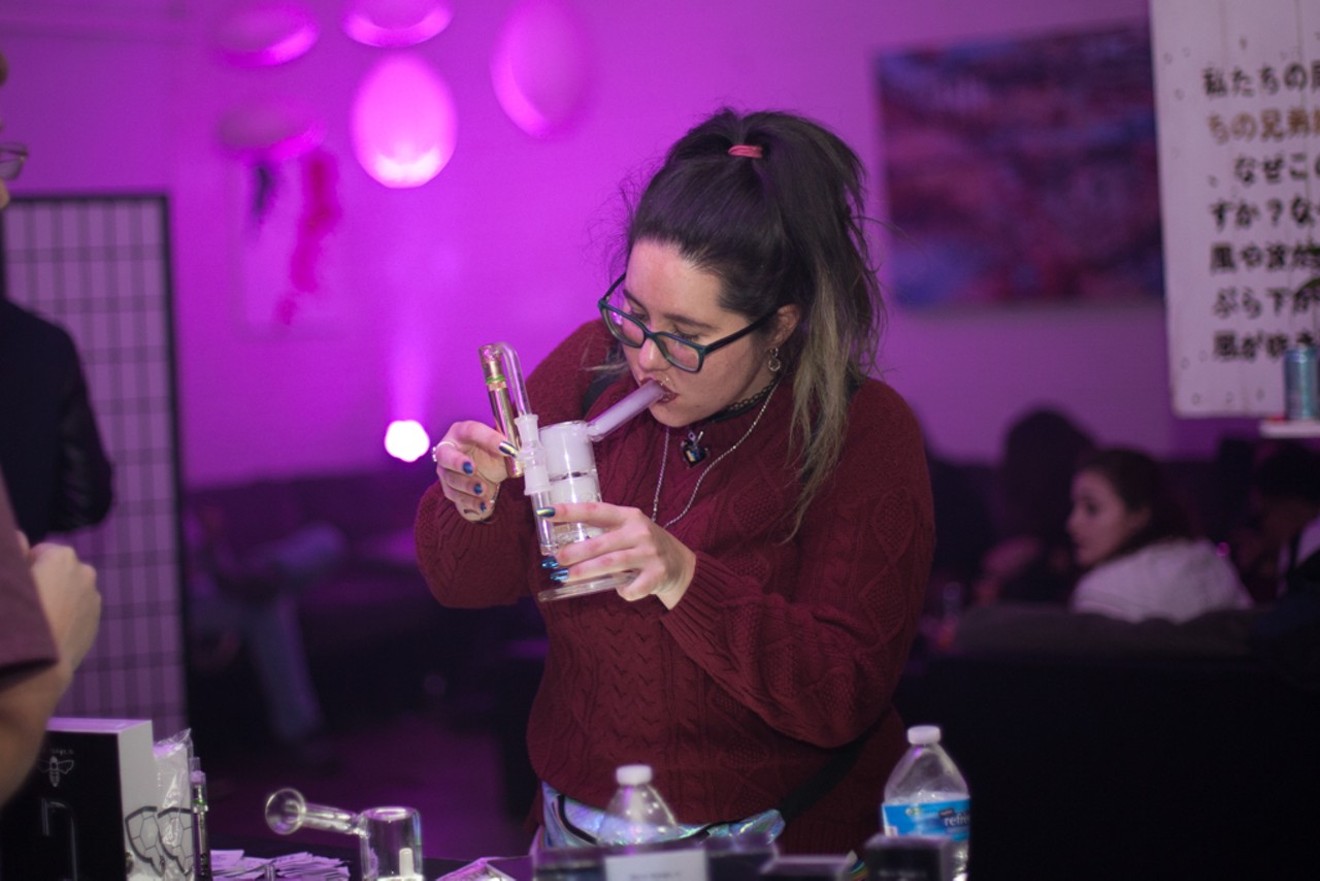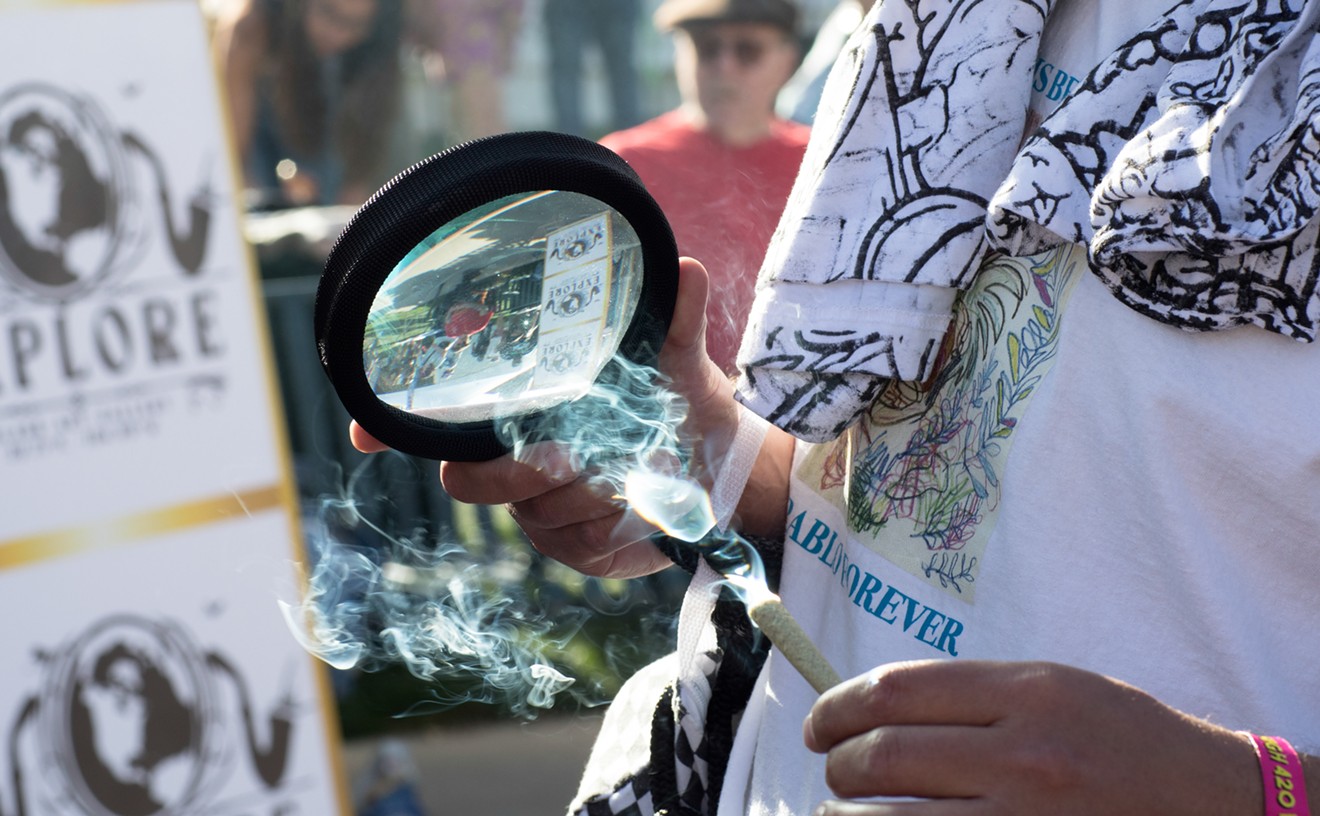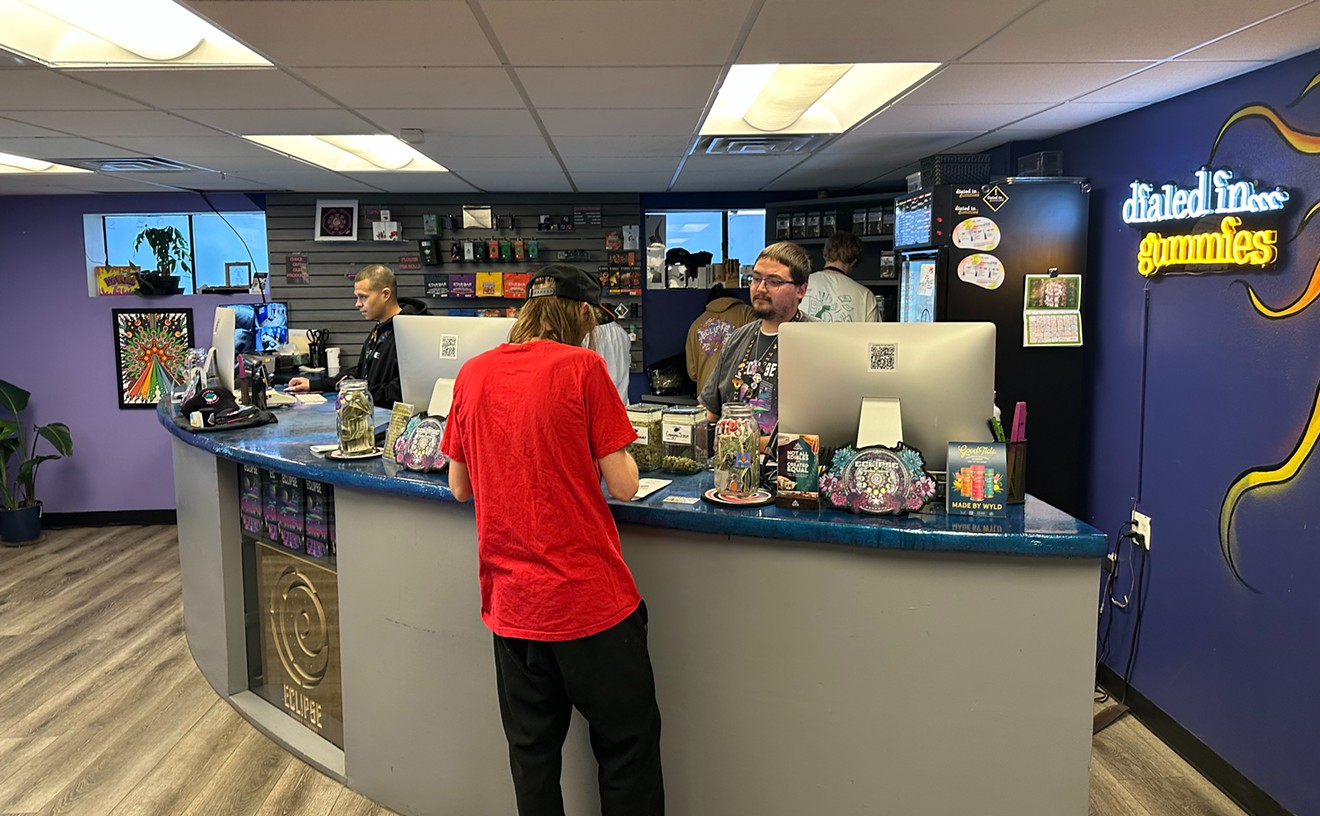Denver's struggles with regulating social marijuana use have been well documented, but this city isn't alone in facing such challenges. According to representatives from Alaska and Oregon, cities such as Portland and Anchorage are in the same boat.
During Denver's annual Marijuana Management Symposium, a three-day conference about pot policy that returned October 31 through November 2, public officials from around the globe gathered in the Mile High City to discuss legal marijuana and its impacts. On top of roundtable chats about business regulations, law enforcement and public-health concerns, the conference offered a ninety-minute discussion about social marijuana use.
Denver's much-maligned social use program has seen only one business open since the city began taking applications in August 2017, while the Denver Police Department and Department of Excise and Licenses have wrestled with what to do about events, social clubs and tours that allow consumption by those who register in advance for what are billed as private events. Compared to other cities, though, Denver might be ahead of the pack — if only by default.
During the panel on social use, officials from Alaska and Oregon talked about the challenges they've faced since voters in their states legalized recreational marijuana in 2014. Like Colorado, those states have wrestled with clubs and unlicensed events that allow pot use, but all three share a bigger problem: tourists.
Like Denver, Portland has seen an uptick in tourists over the past few years. Although hotels within the city are allowed to designate 20 percent of their rooms for smoking tobacco or marijuana, streets and alleyways are still a popular place for visitors to toke up, according to Brandon Goldner, Portland's cannabis program specialist.
According to Goldner, neither Portland nor the State of Oregon has an official regulation regarding social use, and like Colorado, Oregon has a clean-air act that bans indoor smoking and also has restrictions on liquor licensees allowing on-site pot use. "Consumption is happening in Portland already," he explained during the discussion. "Having that regulatory certainty is really important for us as regulators."
Alaska's tourism issues stem from the cruise-ship industry. According to Sarah Oates, program coordinator for the Alaska Alcohol and Marijuana Control Office, many small towns on the Alaskan coast are regularly flooded with tourists, many of whom are interested in legal marijuana. "Tons of people explode into these tiny towns overnight," she said, explaining that local police are hesitant to issue public consumption citations to tourists out of fear of losing future tourism dollars.
And that's not the only issue Alaska faces. "A lot of our state is made up of national parks or [United States] Forest Service, and visitors are consuming on federal land, which is illegal," Oates noted.
No bills or ballot measures concerning social use regulation have passed on the local or state level in Alaska. Oates said that the Alaska Alcohol and Marijuana Control Office preferred to "wait on Massachusetts," where state regulators may allow marijuana cafes to open in 2019 or later.
The Colorado Legislature passed a measure addressing social pot use in the last session, but it was vetoed by Governor John Hickenlooper in June; the bill would've allowed dispensaries to open tasting rooms similar to those of breweries.
Denver voters approved Initiative 300 in November 2016, which allows businesses and event promoters to apply for social pot use areas. As implemented, though, it's been criticized by industry members, the initiative's drafters and Denver City Council members for the harsh location restrictions that were added after I-300 passed.
One of the symposium's partners, My 420 Tours, is currently (and ironically) battling the Denver City Attorney's Office after two of its buses were pulled over in June; four employees were arrested and numerous customers cited for public pot consumption. Just days later, though, My 420 Tours was awarded a contract by the city to drive symposium visitors around Denver to licensed pot business.
But the June charges have not been dropped, and the four My 420 Tours employees are going to fight criminal charges in court, according to My 420 Tours CEO Danny Schaefer.
Denver Assistant City Attorney Marley Bordovsky, who was on the social use panel, has prosecuted several Denver clubs and event promoters for allowing or promoting social pot consumption. Bordovsky told the audience that Denver's current licensing plan doesn't offer a profitable business model because of state regulations banning any social use business from both selling cannabis and allowing alcohol use; she would have preferred to see the dispensary tasting-room model that was vetoed by Hickenlooper.
"I think we're all seeing the same thing," she explained. "It's just the nature of the beast. It's time-intensive and resource-consuming to issue small tickets [for public pot consumption]. We have a local solution for a statewide problem. They can't make money, they can't sell cannabis, and they can't sell liquor. To add this liability to an already-existing business would be discouraging."
For the past six months, Councilwoman Kendra Black has led a city task force evaluating the success and failures of the city's social use licensing program; she'll present the group's recommendations to Denver City Council on November 16. The recommendations range from decreasing location restrictions to calling on the state to address such issues as allowing alcohol and marijuana use on the same premises.
During an interview last month, though, Black said she doesn't expect that the city council will approve the task force's recommendations. And so at next year's annual Denver symposium, there could be yet another panel on the challenges of social consumption.
[
{
"name": "Air - MediumRectangle - Inline Content - Mobile Display Size",
"component": "12017618",
"insertPoint": "2",
"requiredCountToDisplay": "2"
},{
"name": "Editor Picks",
"component": "17242653",
"insertPoint": "4",
"requiredCountToDisplay": "1"
},{
"name": "Inline Links",
"component": "18838239",
"insertPoint": "8th",
"startingPoint": 8,
"requiredCountToDisplay": "7",
"maxInsertions": 25
},{
"name": "Air - MediumRectangle - Combo - Inline Content",
"component": "17261320",
"insertPoint": "8th",
"startingPoint": 8,
"requiredCountToDisplay": "7",
"maxInsertions": 25
},{
"name": "Inline Links",
"component": "18838239",
"insertPoint": "8th",
"startingPoint": 12,
"requiredCountToDisplay": "11",
"maxInsertions": 25
},{
"name": "Air - Leaderboard Tower - Combo - Inline Content",
"component": "17261321",
"insertPoint": "8th",
"startingPoint": 12,
"requiredCountToDisplay": "11",
"maxInsertions": 25
}
]













